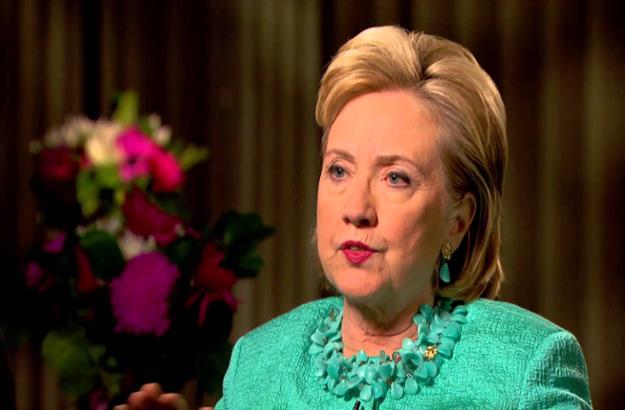Hillary Clinton’s Thoughts on Energy
Posted by Daniel Hoornweg on June 24, 2014
 Peter Mansbridge interviewed Hillary Clinton, the former U.S. Secretary of State, recently while she was in Toronto selling her new book. At the tail end of their wide-ranging talk he asked about her thoughts on the pending XL Pipeline decision; a decision that, were she still Secretary of State, would be hers to make. Ms. Clinton would not answer Mr. Mansbridge’s first question on whether she would run for President in 2016 but she was much more forthcoming in her answer regarding the XL Pipeline.
Peter Mansbridge interviewed Hillary Clinton, the former U.S. Secretary of State, recently while she was in Toronto selling her new book. At the tail end of their wide-ranging talk he asked about her thoughts on the pending XL Pipeline decision; a decision that, were she still Secretary of State, would be hers to make. Ms. Clinton would not answer Mr. Mansbridge’s first question on whether she would run for President in 2016 but she was much more forthcoming in her answer regarding the XL Pipeline.
Ms. Clinton couldn’t comment on the likely outcome of the XL Pipeline decision but she did say she would love to see, maybe through parallel “track two” discussions between Canada and the US, efforts to build a North American energy powerhouse. She proposed a number of topics the discussions might cover including coordination of electricity grids; a common approach to climate change; and using natural gas and energy conservation as a bridge to clean renewables. The former First Lady suggested this coordination should then expand to Mexico, “making North America the world’s energy powerhouse of the 21st Century. And not just with yesterday’s fuels.”
These sentiments fit well with Prime Minister Harper’s call for Canada to be more of an ‘energy superpower.’ Canada has hydro-electricity, nuclear power, and lots of oil and gas in Alberta, Newfoundland and elsewhere.
Canada has rich energy history too. For example, today’s electricity system seen round most of the world can be traced back to Niagara Falls. And much of today’s petroleum industry can be traced back to Southern Ontario where the first commercial oil well was developed in Oil Springs in 1858, a full year before the more famous Titusville, Pennsylvania. But tomorrow’s growing energy markets are no longer in North America – they are in Asia for the next 20 to 30 years and then Africa. That’s where cities and therefore energy demand are growing fastest.
Manitoba Hydro serves just over 500,000 households at home, but the utility’s international arm is helping to manage the main Nigerian company supplying electricity to more than 28 million households. Smart grids, smart meters, nuclear power, hydro, renewables, geothermal, along with oil and gas --, Canada has them all, with enormous capacity to export.
Ontario, Quebec and BC have some of the world’s greenest, cheapest, and most reliable electricity. In developing a North American energy plan these Provinces will be well positioned to encourage development of electric cars and natural gas vehicles (especially trains, trucks, buses and ships). How to effectively and safely export liquid natural gas, create long-term customers and defray energy infrastructure capital costs are all big questions. In Canada the answers are influenced by what the US does. Why not work together? The Free Trade Accord even encourages this.
The Northern Gateway pipeline and the pending decision on XL: These are not easy decisions and there is still a long road to travel before they are achieved. But a positive signal was provided last week. If Canada does these in partnership with their largest trading partner, things should be easier. Ms. Clinton suggests if we keep an eye to the future as we move forward, there could be even greater opportunity. Who knows if Ms. Clinton is going to be the next President of the United States; but what we do know is it’s prudent to listen to her when she talks about energy policy.
Watch Hillary Clinton's full interview with Peter Mansbridge at CBC.ca.
Photo Source: CBC News
Filed under: Sustainability 101